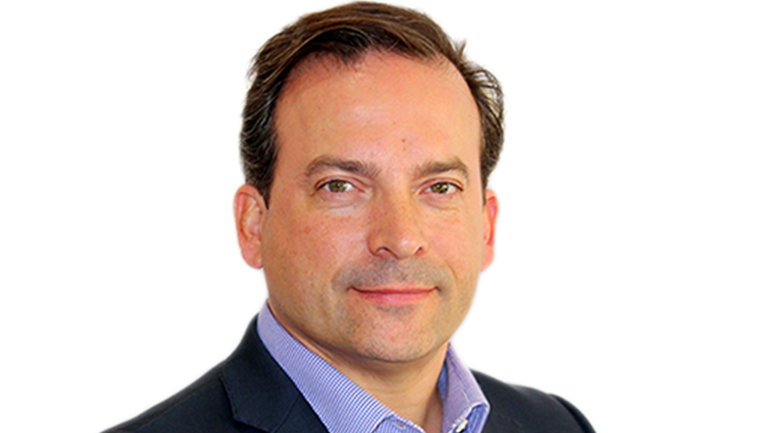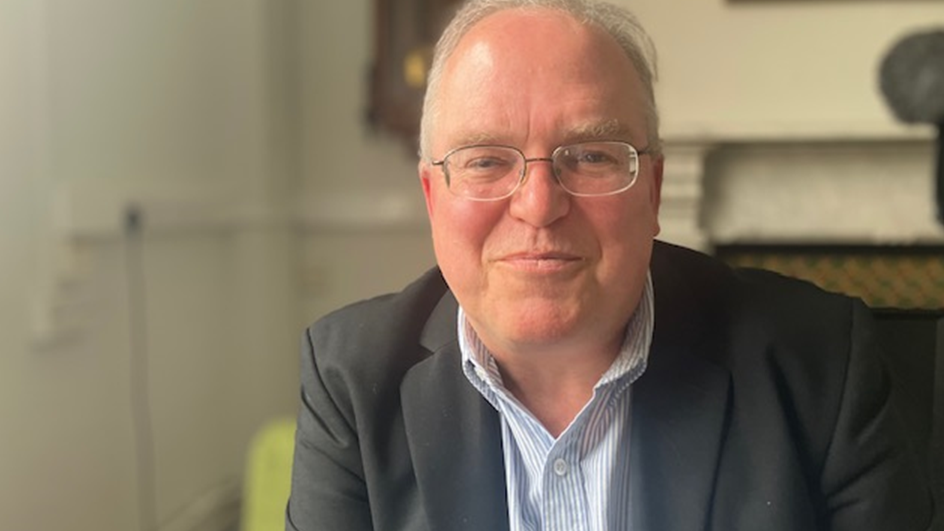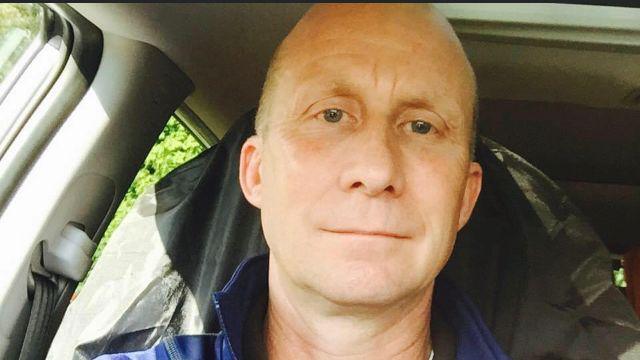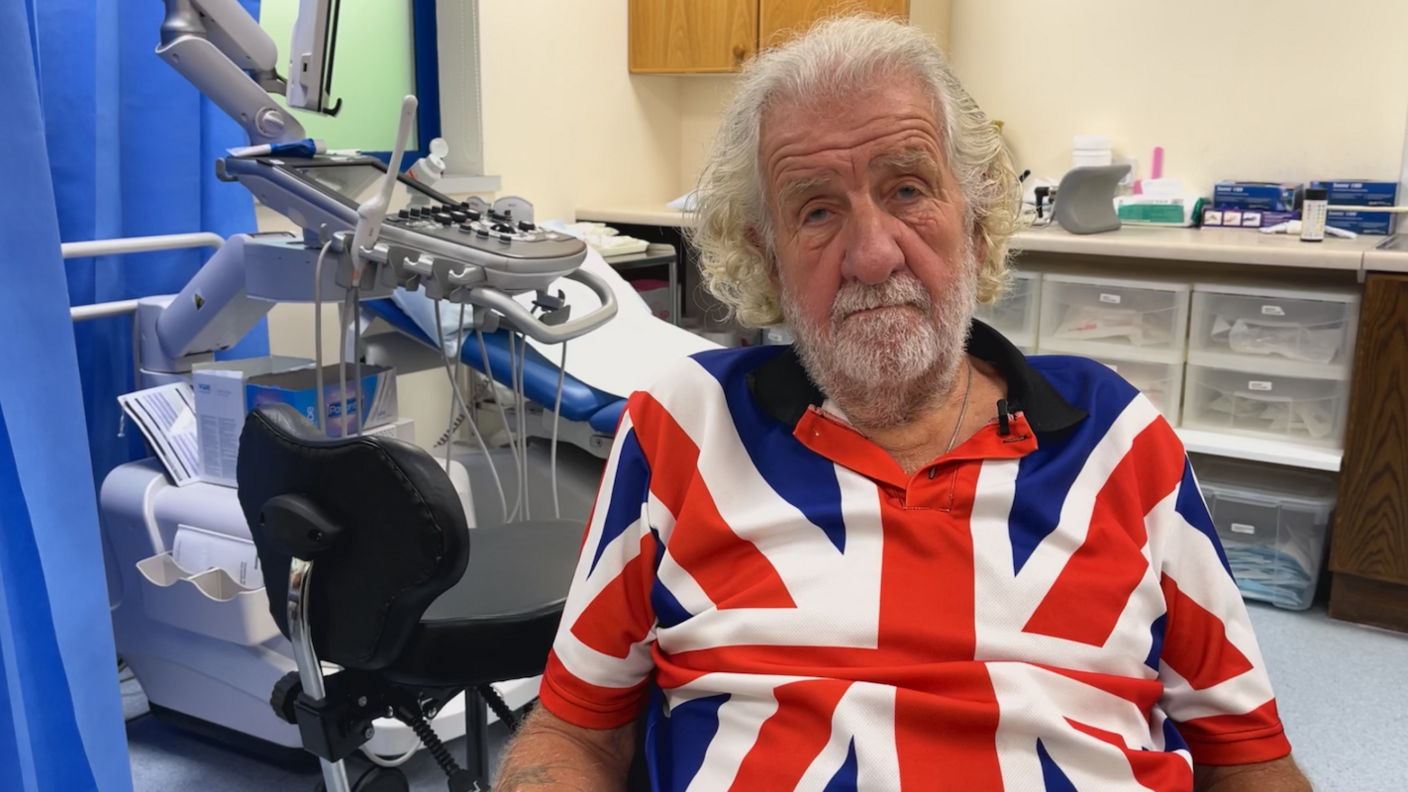Long waits for prostate cancer patients

Gavin Angus has finally been given an operation date of 27 September
- Published
More than 20 men at a regional specialist cancer treatment centre have been waiting more than 60 days for treatment, twice the national target.
Gavin Angus, 61, from Panborough in Somerset, was diagnosed with prostate cancer in May and is set to have it removed at Southmead Hospital, Bristol on 27 September.
Prof Tim Whittlestone, Chief Medical Officer at North Bristol NHS Trust (NBNT), apologised for delays and said they were recruiting an additional prostate cancer surgeon to keep up with increasing demand.
"Unfortunately this means that some are waiting longer for surgery than we would like," he said.
Prof Whittlestone added they were also carrying out surgery at the weekend, so they can see more patients sooner.
Southmead Hospital is the region's specialist centre and performs the largest volume of robotic prostatectomies in the South West, which is said to give better outcomes and shorter length of stay following surgery.
According to the latest NHS waiting list figures in May 85 men were treated within the 31-days of diagnosis to treatment target for prostate cancer by North Bristol Trust.
More than 60 patients had to wait longer, with 21 men like Mr Angus on the list for more than 62 days.
There was one patient waiting more than 62 days in Somerset, and Gloucestershire Royal Hospitals NHS foundation trust had eight.
'Juggling act'
Mr Angus said: "It is a relatively long wait without any information, which makes it difficult.
"I was originally told it has to be dealt with in six weeks, and there is an element of lottery to it.
"There's not enough resource and too many people requiring this treatment so they are playing a juggling act," he added.
"Staff weren't telling me what was going on because they didn't know themselves, the waiting lists are over-running quite a lot."
High intensity ultrasounds
According to experts in the field, another less invasive treatment called High Intensity Focused Ultrasound (HIFU) could reduce waiting lists.
HIFU can be suitable for prostate cancer that has not spread outside the prostate or that has come back in the prostate after treatment.
The technique, piloted at the Royal United Hospital (RUH) in Bath, uses high frequency sound waves, which create heat, to destroy prostate cancer cells.
A spokesperson for RUH said: "HIFU therapy adds to our range of treatment options, complementing our existing robotic surgery program and other available treatments.“
The RUH said following the successful pilot, they are now considering the next steps "required to establish a fully commissioned and funded service.”
North Bristol Trust have not commented on why they do not offer HIFU but Ruth Carr, managing director of the Somerset, Wiltshire, Avon and Gloucestershire Alliance, said they "are working with providers across the region to ensure access is provided to the latest, least invasive treatments to ensure the best outcomes and experience for patients and to reduce waiting times.”

Tim Dudderidge, Consultant Urologist at Spire Southampton Hospital
Consultant Urologist Tim Dudderidge regularly uses this technique at Spire Southampton Hospital and said it allows surgeons to do the treatment "in a targeted way".
"When we are treating prostate cancer we don’t have to treat the whole of it, we can just treat the parts of the prostate that are affected by the disease leaving the healthy tissue unaffected,"
Mr Dudderidge said it therefore reduces the side effects for patients compared to treatments like radiotherapy and surgery.
Mr Dudderidge believes that it could help reduce waiting lists in the NHS, adding: "You can treat probably twice as many patients in theatre in the same time frame compared to doing a radical prostatectomy,"
He said there is also evidence to suggest it is also cost effective.
Get in touch
Tell us which stories we should cover in Bristol
Follow BBC Bristol on Facebook, external, X, external and Instagram, external. Send your story ideas to us on email or via WhatsApp on 0800 313 4630.
- Published16 August 2024

- Published27 June 2024

- Published15 July 2024
